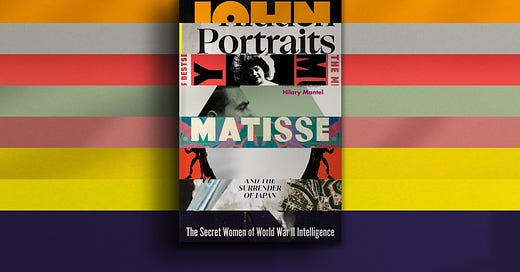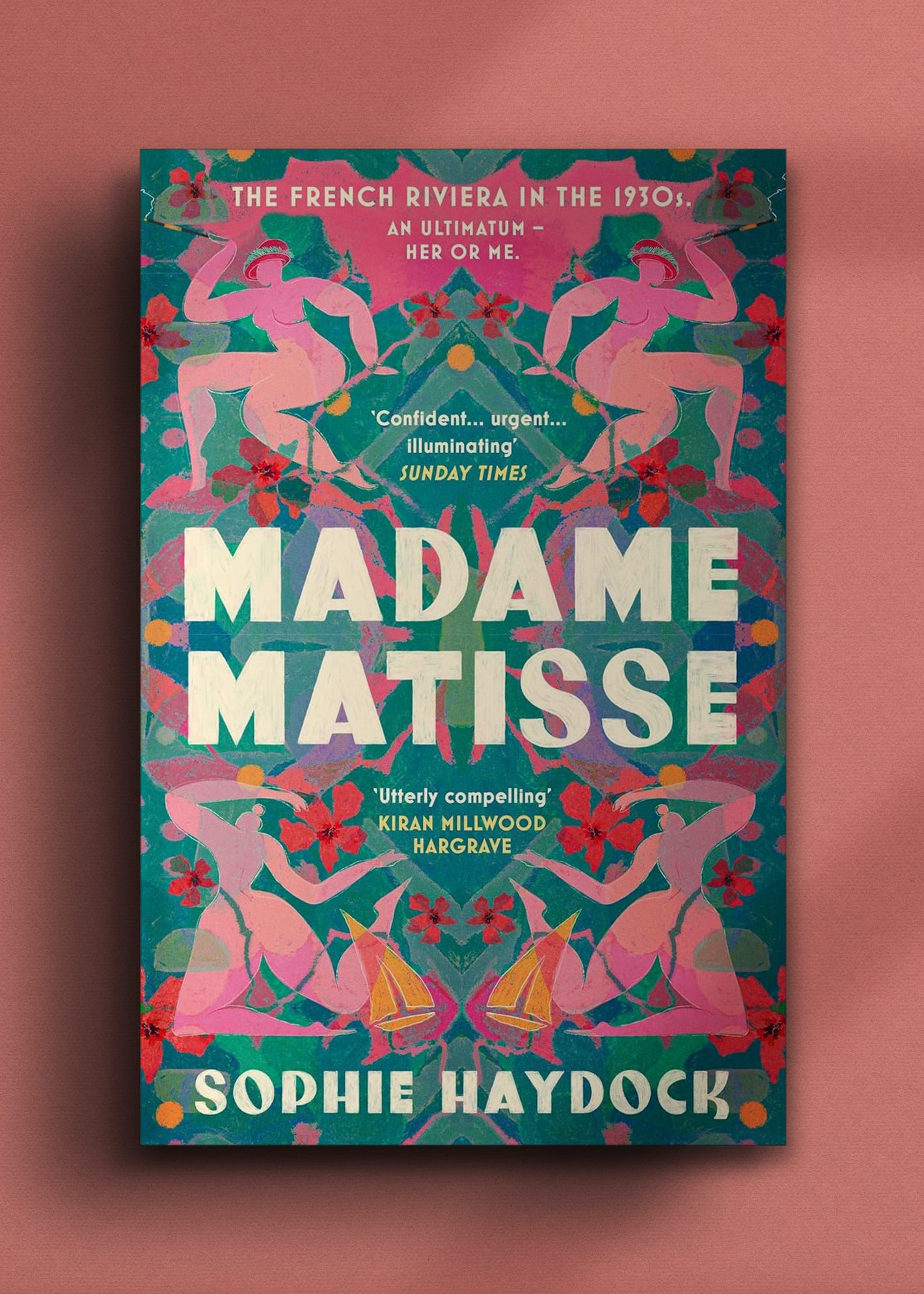Here is a selection of anticipated new history books that will be released over the month ahead.
Unseen Histories relies on your patronage to operate. You can support us by purchasing a book via the links, from which we will receive a small commission. Thank you for your support.
Humans: A Monstrous History by Surekha Davies
University of California Press, 4 March, 2025
Ever since Yuval Noah Harari's Sapiens a decade ago, publishers have retained their taste for ambitious history books — works that examine the vast sweep of our human story and seek to teach us something new about ourselves.
Surekha Davies's Humans: A Monstrous History falls into this category and it's a book that very much deserves attention. Davies' approach is eye-catching and playful. See-sawing back through the centuries, she goes looking for the 'monsters' that appeared at specific moments and she investigates what their deeper meaning was.
A playful work, perhaps, but it is one with a serious message. In showing how our ancestors singled out individuals or groups for ridicule, persecution or entertainment, she demonstrates how prejudices take root and how contagious can be. Nimbly written, excellently researched, this a book driven by a passionate argument.
Propaganda Girls by Lisa Rogak
Footnote Press, 6 March
The Second World War is increasingly passing out of human memory, as the number of living veterans dwindles to a tiny few. Given this, it's striking to see how many fresh stories about that conflict are continuing to appear and here, in Propaganda Girls, Lisa Rogak has plucked out an incredibly colourful one.
The war meant many things to many people, but to many women it signalled the collapse of their narrowly confined worlds. Rogak shows how four particular women—Betty MacDonald, Barbara 'Zuzka' Lauwers, Jane Smith-Hutton, and Marlene Dietrich (yes, that one)—served the Allied cause by producing propaganda that was cleverly disseminated among Axis troops.
Lisa Rogak is a skilled and lucid storyteller. In Propaganda Girls, a mix of biography, social and military history, she has produced an engaging, invigorating read.
Rain of Ruin by Richard Overy
Allen Lane, 6 March, 2025
Set in the same time-frame as Rogak's Propaganda Girls (above), Richard Overy's Rain of Ruin has a more fixed geographical focus. His eye rests on the one place that was altered more than any other at the end of the Second World War. Japan.
In the early twentieth-century our conception of war changed fundamentally. In earlier times it had been a strictly coded affair, almost like a sport, with rules and honour paramount. By the time of the events narrated here, war had become an uncontrollable force: devastating, terrifying, existential.
All this was laid bare at Hiroshima, when the dropping of the Bomb demonstrated that no one - civilian, woman or child - were safe in conflict. In this provocative and brilliantly conceived short book, Overy examines the disturbing events that brought the Second World War to an end and he investigates the dangerous thinking that lay behind them.
Operation Bowler by Jonathan Glancey
Oneworld, 6 March, 2025
Completing our trio of Second World War books this month is Jonathan Glancey's 'mission history', Operation Bowler. Again this story dates to the tail end of the war and once more it involves the moral conundrum that is instantly clear to anyone who runs their eye over the subtitle: 'The Audacious Allied Bombing of Venice'.
The date of this story (March 1945) reveals more complexities. This is a time after the Invasion of Italy, after D-Day, after the Liberation of Paris and of Auschwitz. At a moment when Adolf Hitler was haunted and hiding in Berlin, could it be right to drop bombs over one of the great cities of Europe's past?
Despite all, Acting Wing Commander George Westlake was picked to lead this operation late in the war. For those who love focussed, pacy narrative war stories, here is a thrilling tale set against the most elegant of backdrops.
Madame Matisse by Sophie Haydock
Doubleday, 6 March, 2025
A decade before the war, far away from Hiroshima or Venice in the French Riviera, one might find the French artist Henri Matisse hard at work. Around him in his studio gathered a vibrant circle of admirers and family members, and it is into this vibrant context that Sophie Haydock has spun her magical new novel: Madame Matisse.
The focus lies not on the artist himself but three women. There is his free-spirited wife of nearly forty years, Amélie, and their eldest daughter Marguerite. Complicating the domestic dynamics is a third lady, Russian-born Lydia, someone who is 'trying to make a place for herself on France's golden Riviera, amid the artists, film stars and dazzling elite'. So begins Haydock's tale.
Madame Matisse is a sumptuous novel of art and ambition, love and betrayal, all of which plays out in a setting filled with thirties zest and seductive colour.
Green Ink by Stephen May
Swift Press, 13 March, 2025
London in 1920 is a vivid setting for Stephen May's sparkling new historical novel. His plot is driven by the mysterious disappearance of the left wing firebrand Victor Grayson, a figure who may be obscure to us today but who was someone with a huge public profile before the First World War.
The legacy of that brutal conflict hangs heavily over May's pages. Imperial London might have escaped unharmed, but the people in it are traumatised, disfigured, resentful and living with a distinctive kind of grubby hedonism. May's depiction of this world is memorable and shot through with dry humour. His story flits between the tawdry and the luxurious; the lowly boarding houses and Lloyd George's handsome country retreat, Chequers.
Ultimately these worlds are destined to meet. Greek Ink is a witty, lucent novel of plots and politics. At its heart lies one of the great mysteries of the time.
Burying the Enemy by Tim Grady
Yale University Press, 25 March, 2025
Tim Grady is a scholar of high regard. Professor of Modern History at the University of Chester, he is known for his previous book, A Deadly Legacy, which examined the Jewish contributions to the Imperial German war effort. The book earned him shortlistings for the Wolfson and Cundill history prizes.
Burying the Enemy has a similar feel. There is the familiar backdrop of twentieth century conflict, and once again Grady invites us to consider an overlooked question: What happened to the bodies of killed enemies?
We are used to the idea of remembrance today. But only when it comes to our own fallen soldiers. Grady, however, shows that right up until the 1960s most towns in Britain contained the graves of enemy soldiers. Buried in British cemeteries were those like Eddy Becker, the young Luftwaffe observer, who for years lay in an Aberdeenshire village. In this elegant, sensitive work of history, Grady documents many such stories, showing a very different side of war.
The Story of a Murder by Hallie Rubenhold
Doubleday, 27 March, 2025
The very name 'Dr Crippen' is enough to stir up all sorts of gloomy associations. That doctor (an eye and ear specialist) is remembered today as a sinister medical murderer; the first man to be convicted and hung on the basis of evidence collected by wireless telegraphy. Crippen's case was, a little more than a hundred years ago, a very great sensation.
Coming at this story afresh is the prize-winning author Hallie Rubenhold. Known for her last book, The Five, which reframed the story of 'Jack the Ripper' by telling it through the eyes of the victims, Rubenhold plays the same trick for a second time. Here, perceptively, evocatively, she reconstructs the story of the 'Crippen Case', only this time she shifts the narrative emphasis towards the women in the case: Corrine 'Cora' Turner, Ethel Le Neve.
A gifted storytelling with a point to prove, Rubenhold's fresh look at 'the wives, the mistresses' is another eye-catcher.
John and Paul: A Love Story in Songs by Ian Leslie
Faber, 27 March, 2025
'Lennon and McCartney' could be said to be the songwriting credit of the twentieth-century. It is, after all, the tag that runs alongside a vast constellation of hits, from Love Me Do to Get Back — songs that evoke one of the great moments in British cultural history.
Reconfigured here as 'John & Paul', Ian Leslie's tender book traces the arc of these men's extraordinary friendship. Opening with their chance encounter at Woolton Village Fete in 1957 and tumbling through the years of success, rivalry, tension, acrimony and reconciliation that followed, it's clear that within this one relationship lies a great spectrum of complex emotion.
Leslie defines this as 'a love story', a affectionate way to interpret the complexity. The Beatles are an evergreen subject, but there is freshness and insight here as Leslie uses the songs themselves as the structure for his narrative. The result is a book that will reward even the most ardent of their fans with something new.
Hidden Portraits by Sue Roe
Faber, 27 February, 2025
Like Hallie Rubenhold (above), Sue Roe's new biographically-driven history seeks a new perspective on a familiar subject. That subject is Pablo Picasso, the wildly talented Spanish artist who lived through such a swathe of historical events. While his creative life is well documented, Roe's book pivots from the familiar to document the 'untold stories of six women' who loved him.
This is a refreshing and enticing approach. Throughout life Picasso moved through successive intense relationships with women. Often these have been dismissed as being either 'models' or 'muses', important in a way but not fundamentally so. In Hidden Portraits Roe counters this view. Her narrative spans a great sweep of time and places, from Montmartre in the early 1900 through to Paris in the Second World War and Picasso's final years of seclusion.
Roe is an author of great gifts and Hidden Portraits is full of critical insight. Picasso you may already know, but here Fernande Olivier, Olga Khokhlova, Marie-Therese Walter, Dora Maar, Francoise Gilot, and Jacqueline Roque lie in wait, ready to finally be met.
You can read all our upcoming history book previews, here.
Subscribe to Unseen Histories for the very best new history books, read author interviews and long-form pieces by the world’s leading historians.

















